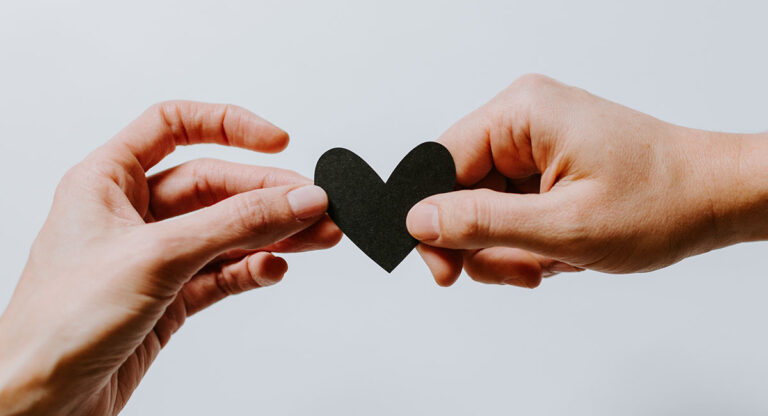
How Attachment affects your Mental Health
Links in some blog posts may earn a commission for The Brain Cleanup Coach.
Attachment is what pins you to your ego.
In my quest to understand my own brain, emotions, and body, lately I’ve been thinking a lot about attachment.
Attachment can be defined two ways:
- an extra part or extension that is or can be attached to something to perform a particular function.
- affection, fondness, or sympathy for someone or something.
One of the very first things an infant does is begin creating attachments. Attachment theory is based on the notion that the mental and emotional attachments we make in infancy and childhood have lasting affects into our adult relationships. That’s not the exact subject of this blog post, but if you’re interested in learning more about this concept, here’s some more information.
The human brain wants attachments. Being able to tether itself to specific people, places, habits, and ways of thinking creates a secure base (just like when kids attach to a caretaker) that can provide shelter from the storm in times of overwhelm.
The brain gets attached to a lot of things. If you’re currently in your personal space, just lift your eyes and look around you. Look at all the stuff you have collected. Think about your daily rituals and habits that your brain has attached to in order to make things feel comfortable and hopefully safe. Think about the people you are most attached to in your life, and why you value them so much. (FYI, attachments aren’t always healthy, but they still create a space of what seems normal to your brain.)
All the attachments harbored in your brain affects your mental health. The brain can attach to some really valuable people and things that serve to elevate your health. But the brain can also attach to people/things/habits that don’t contribute to your physical and mental health, and can in fact do the opposite.
Let’s take a look at two forms of attachment.
Unconscious Attachment
Depending on the patterns established in your youth, there is a template for attachment deep in your brain. If there was instability and chaos in your childhood, the brain might look to attach itself to things that feel like functioning within that early environment. Your brain might make attachments subconsciously to people who fit the profile of those in your past.
Your brain might also attach to adult habits that mimic the habits you created as a kid to cope. For example, if you would lose yourself in imaginary play, even in environments that required your attention, you may have found the adult equivalent that allows you to check out, and your brain is attached to it.
You may have also unconsciously attached to things that society says you should. A house. A vehicle. Clothing or accessories. A certain exercise class, or regular trips to the juice bar. There are so many messages that go under the radar to our conscious awareness, but that can be whispering in the ear of our subconscious mind, telling it what to attach to.
Because of that, a lot of attachments can sneak in that don’t truly align with who we are and what we value, and this can lead to existential worry that we can’t quite put our fingers on. To attach to something is to also invite the worry of loss that always accompanies the attachment.
Conscious Attachment
In my mind conscious attachment is a form of attachment that I choose, with full awareness, to make. Or that I choose to keep, again with full awareness.
I came up with the following exercise to challenge myself to consider all my attachments, from my husband to evening television viewing, and then think about how much they align with what truly matters to me. I think about monks who choose to live very simple lives and shed most of their attachments, so I know it is possible to get intentional about this.
EXERCISE: Think about, and even write down if you’re so inclined, everything you’re attached to.
- the people in your life
- your habits by day/week/month/year
- the physical attachments you have like your house, car, clothes, jewelry, books, furniture, garden… all that stuff
Also, it may be that you’re not particularly attached to the couch in your living room, but you’re definitely attached to the idea of having a couch. Or maybe you’re entertaining the idea of buying a new house while the one you’re currently in is just fine. Ideas count as attachments too. If you have any “Some day I’m going to…” ideas in your mind, you can count those as attachments.
Then here’s the challenge. Imagine that for each attachment you keep, you lose one year of your life. I know that sounds drastic, but I made it drastic to really challenge myself to think about the attachments that are worth that much of my life. It turns out there aren’t that many. And some of your answers might seem callous to you, for example if a current friendship or connection wouldn’t be worth a year of your life. Or maybe something you’ve been saying you should do for years doesn’t make the cut.
It’s ok to be honest about that, and again, this is just an exercise. Once you identify what you would intentionally remain attached to, and you would exchange some of your life for, you can prioritize those attachments. You can place them at the top of your conscious attachments, and figure out if all the other petty attachments your brain has made is crowding out the really good, life-affirming attachments that are worth your precious time.
In doing this you might free up some space in your mind, and let go of some of that worry that accompanies each and every attachment, giving your mental state some needed relief, and your mental health a boost.
If you enjoyed this article you might also like:




